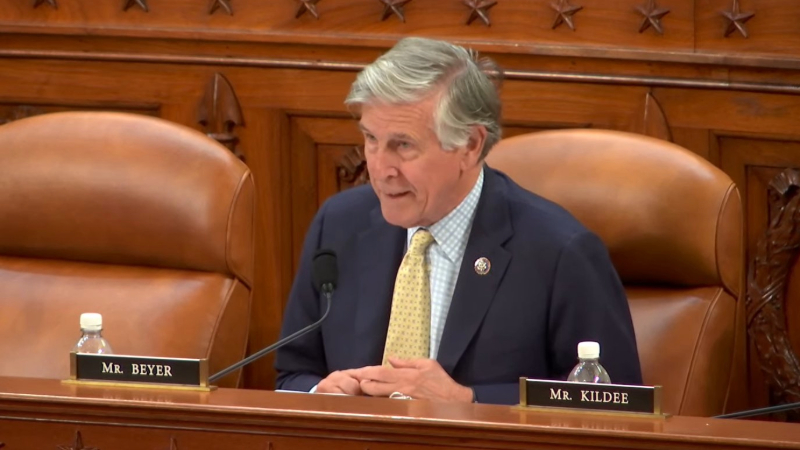
With the House AI Task Force set to hold its first meeting today on Capitol Hill, Rep. Don Beyer, D-Va. – one of the 24 members on the task force – laid out his top three goals for pursuing legislation that impacts the technology.
According to the congressman, there are more than 200 AI bills that have been introduced on the Hill, and he plans to focus on passing legislation that promotes innovation, supports Federal funding, and pushes for increased transparency.
“[The task force’s] job is to sort through the 200 to figure out, if we can only pass five or six, which are the ones that are going to make the biggest difference,” Rep. Beyer said during the March 12 Nextgov/FCW Generative AI Workshop in Washington, D.C.
“I can’t say [my three goals] are the three goals of the task force yet because we have our first meeting this afternoon at 2:30, but I’m hoping that they will at least influence those goals,” he said.
The House officially launched its bipartisan AI Task Force on AI on Feb. 20 to help move along legislative proposals to regulate the evolving technology. The task force – which takes after the Senate’s AI working group – is chaired by Rep. Jay Obernolte, R-Calif., and co-chaired by Rep. Ted Lieu, D-Calif., and is made up of 12 Republicans and 12 Democrats.
Rep. Beyer said his first goal is to promote AI innovation at home.
“The EU has just passed their big European Union AI act, but we have enormous concerns that it is very prescriptive and restrictive. You got to license everything; you need permission from the government to do anything – it’s the opposite of the Wild West America,” the congressman said. “I know there a bunch of entrepreneurs … who are out there trying to find new ways to use [AI]. We want to make sure that that happens here.”
Rep. Beyer said this first goal is “very bipartisan” and mentioned the urgency Congress has for passing the CREATE AI Act, which would codify the National Science Foundation’s National AI Research Resource to help democratize the development and use of AI for everyone – including for researchers and small businesses.
His second goal is to support Federal funding for the government’s AI efforts.
“The President’s budget came out yesterday. I think tomorrow, we will finish funding last year,” Rep. Beyer said of Congress’ negotiations to finally fund agencies for fiscal year (FY) 2024 after nearly six months of continuing resolutions.
“But because of the Fiscal Responsibility Act, which they agreed to last summer, that FY2024 budget overall is going to be the same as the FY2023 budget. So, lots and lots of people are taking haircuts,” the congressman said. “But what can’t – it is happening but shouldn’t happen – is this impact on the National Institutes of Standards and Technology, NIST, and the National Science Foundation, because those are the two Federal agencies that are going to have the biggest responsibility for pursuing the President’s AI Executive Order [and] for doing all the different bills that we have out there.”
Rep. Beyer highlighted that 60 percent of NIST facilities don’t currently meet the Federal standards for acceptable building conditions. “How can we expect NIST to lead the U.S.’s AI work while they are so underfunded and understaffed,” he said.
“A second really big piece is the new AI Safety Institute, which was set up within NIST, and we got $10 million in the [FY24] budget for it, but that’s not nearly enough to be guarding against all the safety downsides that are happening with artificial intelligence,” Rep. Beyer said. “So, we’re going to be pushing really, really hard to make sure that the Federal government workers and leaders get the money they need.”
The congressman’s third legislative goal for AI is to push for increased transparency and consumer protection when it comes to big tech, like the large language models run by Microsoft and OpenAI.
For example, Rep. Beyer introduced the AI Foundation Model Transparency Act to make AI models more transparent by requiring the creators of these models to make certain information publicly available to consumers.
“This bill really protects the small deployers,” he said. “It’s only going after the big four or five to make sure that all the all the entrepreneurs that are trying to make AI happen … are not held back by it.”
Rep. Beyer concluded his speech by noting that the very first bill Congress should pass must be the bipartisan, bicameral Block Nuclear Launch by Autonomous AI Act, which aims to ensure that no Federal funds can be used for any launch of any nuclear weapon by an automated system without “meaningful human control.”
